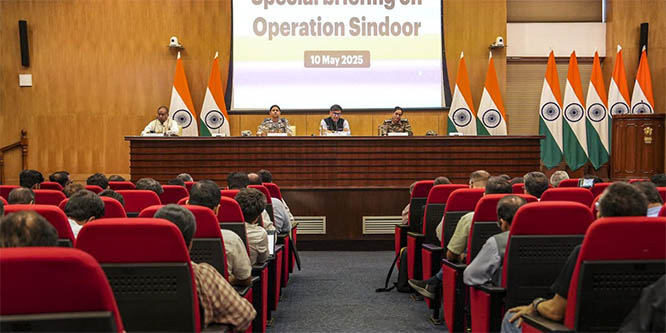
New Delhi, Feb 14: Side-effects after COVID-19 vaccination — 'reactogenicity' in medical linguistic — was reported in 66% of the healthcare workers, which mostly subside within a day of their onset, said a survey conducted by noted public health experts for the Kochi chapter of the Indian Medical Association (IMA). A total of 5,396 healthcare professionals across India, who had received COVID-19 vaccines were surveyed for the study, which was led by Dr Rajeev Jayadevan, a gastroenterologist and former president of IMA Cochin.
In the survey, the respondents in the survey stated that the most commonly reported symptoms they experienced after immunisation were Myalgia or pain in the muscle (44%), fever (34%), headache (28%), local pain at the injection site (27%), joint pain (12%), nausea (8%) and Diarrhoea (3%). Tiredness (45%) was the most prevailing symptoms. "The occurrence of other symptoms such as sore throat, insomnia, giddiness, rigour, an allergic rash, chills, vomiting, syncope were reported 1% or less cases," study said.
It also noted that the symptoms reported by the respondents were not severe in nature or required hospitalisation. Besides, the survey also pointed out that in 90% of the cases, the symptoms were either milder than expected or met the expectation of the vaccine recipient. Experts have also pointed out that experiencing side-effects is normal in any vaccine.
My study on post vaccination symptoms among 5396 healthcare workers is available on medRxiv.
Symptoms were more among women and among younger people. Onset within 11 hours, duration mostly less than 48 hours.
Thanks Dr Ramesh Shenoy & Ms Anithadevi TS https://t.co/DzIaiAm2IN pic.twitter.com/wXKM6MU0Gr
— Rajeev Jayadevan (@RajeevJayadevan) February 13, 2021
Meanwhile, the survey illustrated that side effects among most of the respondents did not last beyond the duration of 24 hours of the onset. "Thirty-seven per cent (1,225) of the respondents revealed that their symptoms did not prolong more than a day while 31% showed that their symptoms lingered for 48 hours, while only 6% claimed that their symptoms stretched beyond the duration of 48 hours," the survey showed.
Speaking to IANS, Dr Rajeev Jayadevan, who is one of the researchers of the survey, said that one of the key takeaways from the survey is that vaccines are safe and there is no need to fear that it will harm ones' body.
"If over 5,000 people who took it (vaccines) and reported no serious problem, then that is a considerable reassurance that the general public can take the vaccine," he said.
Another key finding of the survey was the linear correlation between age and post-vaccination symptoms suggested that the reactogenicity of the vaccine declined with age; means the chance of having post-vaccination symptoms decreased with advancing of age.
The frequency of symptoms was found highest, 81.34%, in respondents aged between 20-29 years followed by 30-39 years (79.57%), 40-49 years (67.94%), 50-59 years (58.23%), 60-69 years (44.76%), 70-79 years (33.73%), and 80-89 years (7.43%).
Jayadevan said that younger people produce a lot of inflammatory cytokines, which elicit reactogenicity (symptoms). This is why they have a vigorous response to the vaccines, whereas it is found lower in the elder population. However, he added that the reactogenicity is not considered a reliable sign of producing antibodies.
"There is a misconception among people and even healthcare professionals who believe that the symptoms are associated with the development of antibodies. Everyone responds differently to the vaccines and elicit varied levels of reactogenicity depending upon age and other factors at play. It cannot be considered as a sign to determine that one's body is producing an immune response to the vaccines," Jayadevan explained.
Dr Ramesh Shenoy, another author of the survey, who is a senior radiologist at a hospital in Kochi, Kerala, said that the conclusions derived from the survey could be that the vaccines are safe while its side-effects are mild in nature and short-lived. "The testimonies of the two-third of the respondents vouch for it," he added.






Comments
Add new comment